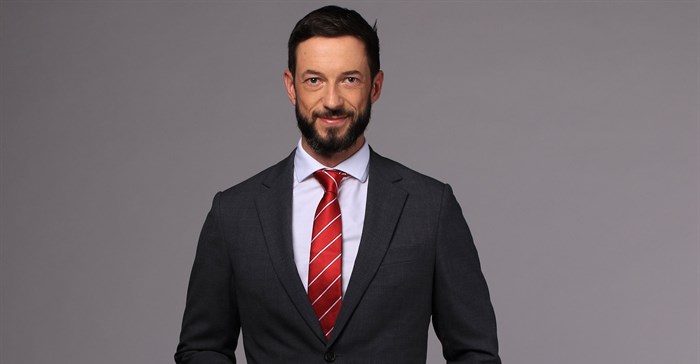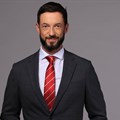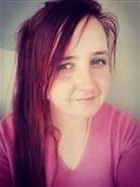"We should never forget what our childhood tells us about where our passions lie," said Waldimar Pelser, the new channel director for kykNET.
He said this after reminiscing about the time his younger sister, Zané, and the amateur TV show they made using a heavy, massive Sony Betamax video camera in the early ‘90s.

Waldimar Pelser
Pelser was recently appointed as kykNET’s channel director and will be succeeding Karen Meiring in February 2022. We spoke to him to find out more about the new role, his vision for kykNET and what we can expect…
Congratulations on your appointment! How are you feeling about it?
I am ecstatic. I love the kykNET channels and admire what MultiChoice and its people, with Karen as the torchbearer, have done for Afrikaans viewers and Afrikaans culture. It is truly an honour to have the opportunity to take the project further.
What are you hoping to achieve in your new role?
I want to support in every way I can the creation of content that delights, informs and engages our audience – and makes all Afrikaans speakers feel at home. My first priority will be to build relationships with the people whose skill and passion allow the Afrikaans channels to thrive. Then to find out what works, and what needs work.
Finally, to embark on that never-ending and exhilarating quest to make the next iconic show a reality. For this, of course, we rely on some of the best TV talent.
You have significant experience in media, how are you planning to use what you have learned in your career in your new role?
The most valuable lesson I take with me into the new role is that the Afrikaans audience owns our platforms, not the other way around. We exist because of them. We make TV for them.
I hope that my love and respect for the Afrikaans community - in which I have worked since 2001 - will help me to be a careful observer of where our audience is at, and what they may want and may need.
Your education history includes quite a few subjects, how do you apply this knowledge to your career?
I studied law and journalism, as well as some history, politics and economics. I’ve never been a true specialist; I have rather tried to become a generalist who knows a little bit about many things. These bits of data help us to piece together explanations for why the world, which is growing in complexity, is the way it is. I like to believe that my background helped to activate a deep curiosity in me about who we are as human beings and in how individuals, communities, and nations function (and sometimes malfunction!).
How imperative do you find it is to celebrate cultural diversity in your line of work?
Cultural diversity is not only a fact, it is an asset. Celebrating diversity in all its facets – diversity of culture, and also the diversity of perspectives this implies – also makes for better TV, because it makes our stories appeal to people with varied life experiences. While celebrating difference, of course, we also celebrate the ways in which we are all the same.
Your knowledge of the Afrikaans community has been mentioned quite a few times, how do you plan to use this to connect with audiences?
Half a lifetime working in Afrikaans gives no one a perfect understanding of what Afrikaans people need and want – the needs of Afrikaans communities are fluid, ever changing, and it is up to us to keep up with these changes, and even anticipate them. The best way to continue improving our understanding of these needs, is to never stop talking to viewers, and to never lose sight of their aspirations, concerns, and desires.
Tell us a bit about your career highlights.
Presenting a live current affairs show on kykNET since 2014 changed my life. After the initial fear of going live (I didn’t smile once during the first show. I was such a ball of tension!), it became immensely pleasurable. Not only was the content fascinating, but I had the pleasure of working with smart, funny, opinionated people. It was fantastic fun. The show allowed me not only to briefly put aside the responsibilities of a newspaper editor but to speak my mind live on air during a tumultuous time in our country’s history.
Being on TV had interesting consequences. At Afrikaans arts festivals, viewers would stop me in the street and strike up conversations, suggesting I was saying what many of them were thinking. This was satisfying, but also taught me how powerful live TV and TV in general is as a medium – you connect with people in a wholly different and very deep way. I could not have done the show without my experience at Rapport, where I worked with the most wonderful, spirited journalists, who later really functioned as a family. I’m also hugely privileged to have reported from the most interesting places, from Kinshasa in the DRC to Freetown in Sierra Leone, and of course Zimbabwe, where I covered several elections.
What changes do you hope to see in the industry for the future?
I hope to see more and more shows with characters that our diverse audience recognises as authentic. On the one hand, we need to reflect on society as it is; on the other, we show the society we aspire to become – it cannot ever only be one or the other. But this means we have to show South African culture and Afrikaans culture in all its rich and complex diversity. TV is not a church where we preach to an audience; it is a home in which we want all our viewers with their different aspirations and views to feel at ease.













































